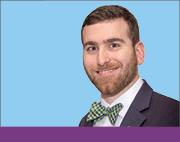Dr. Feldman’s ‘New Dentist Hustle’ and Dental Advocacy
 Some new dentists like to get their feet wet in the industry before they expand their focus to organized dentistry. They focus on honing their clinical skills, learning business and practice management skills, and pursuing continuing education opportunities to expand on what they learned in dental school. Steven G. Feldman, DDS, however, was attuned to many of the major legislative issues facing dentistry before he even chose the profession, and his involvement with organized dentistry’s advocacy efforts started in dental school.
Some new dentists like to get their feet wet in the industry before they expand their focus to organized dentistry. They focus on honing their clinical skills, learning business and practice management skills, and pursuing continuing education opportunities to expand on what they learned in dental school. Steven G. Feldman, DDS, however, was attuned to many of the major legislative issues facing dentistry before he even chose the profession, and his involvement with organized dentistry’s advocacy efforts started in dental school. “I’m a fourth-generation dentist,” said Feldman. “I grew up with dentistry and always knew I wanted to be somewhere in the medical area. But seeing the state of medicine turned me away from that path. The issues we’re fighting in dentistry right now were plaguing medicine then, but, in dentistry, we still have autonomy. You can still work for yourself — you don’t have to be an employee of a large corporation, and you’re not completely beholden to insurance or the government if you don’t want to be.”
While at the University of Maryland School of Dentistry, Feldman joined the student AGD chapter as well as the American Student Dental Association (ASDA). From the very beginning, he didn’t have to ask to be included — AGD leaders recognized his enthusiasm and worked to connect him with opportunities to develop his strengths.
“AGD offers a level of mentorship that other organizations don’t have, which makes it easy to jump right into the deep end,” Feldman said. “Some of my mentors along the way include AGD Past President Maria Smith, who appointed me to AGD’s Legislative and Governmental Affairs (LGA) Council and Dental Student Task Force while I was still a student; AGD and ADA Past President Jeff Cole, who once counseled me on how to request a special vote for a resolution I had proposed during the ASDA House of Delegates session when it looked like it would be a close vote; and LGA Council consultants Mike Bromberg and Joe Battaglia and Chair Rocky Napier, whom I met as a student at AGD’s Leadership Development Symposium and have since worked with closely on AGD’s advocacy efforts. Working with mentors like these opened my eyes to the issues facing dentistry as a whole.”
Feldman applies an evidence-based approach to forming his opinions on proposed legislature and advocacy positions. “The first step is being present,” he said. “Being present begets involvement. You don’t know something is an issue if you aren’t involved in your state or on the national level. I haven’t been in dentistry as long as others, but my AGD mentors have served as excellent guides. If you look at what solutions the evidence supports, it becomes clear what the best answer is for patients, and what’s good for patients is good for the profession.”
He’s also not afraid to change his mind when presented with new evidence. “I used to be anti-corporate dentistry because I’d heard horror stories from people who were involved and got out. But, as I learned more about the issue, I realized it isn’t that the corporations are inherently bad — a corporation does what it’s intended to do, which is maximize profit. They are also critical in providing jobs for new dentists. The real problem is fee-splitting, or the ability for someone who isn’t a dentist in that practice to take a percentage of the practice’s revenue, which incentivizes them to make you produce more.
“To tackle this issue in Maryland, we collaborated with like-minded dental service organizations to introduce consensus legislation barring fee-splitting, which passed this spring and takes effect in October. This represents the culmination of five years of advocacy efforts, and it’s truly gratifying to see your efforts come to fruition in a way that tangibly benefits the profession.”
Feldman currently practices with his father in Washington, D.C. As part of his “new dentist hustle” to learn and practice as much as possible while building on his foundation of clinical knowledge, he also volunteers with Spanish Catholic Charities in Washington, D.C. His future plans with AGD include taking the Fellowship Exam next year and beginning to work toward his MAGD. “I plan to continue to be involved, be present and be at the table. If there’s a way that I can give back or contribute to the organization and the profession, I want to make myself available. And, if they can use me, I’m happy to help.”
